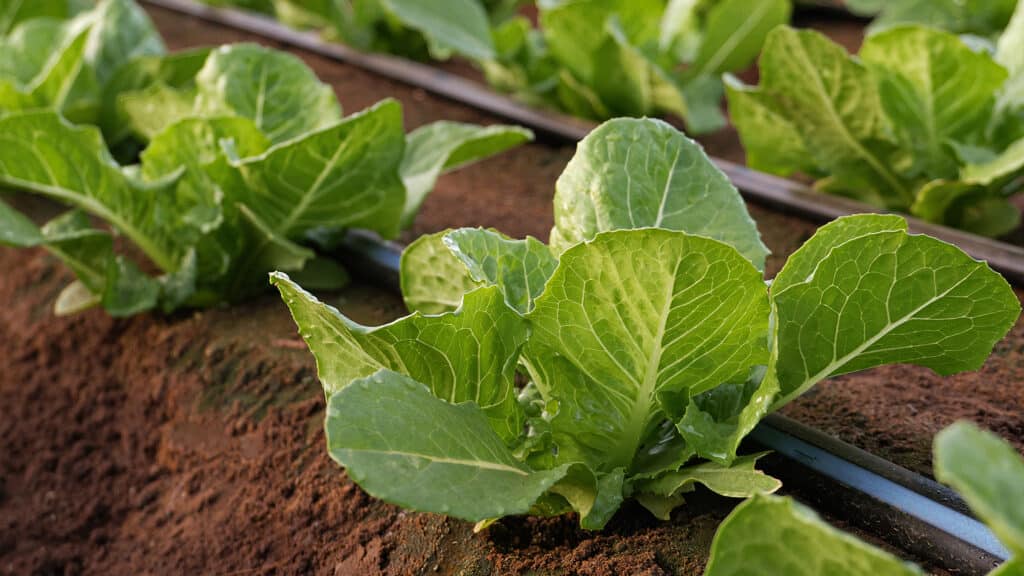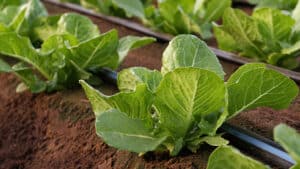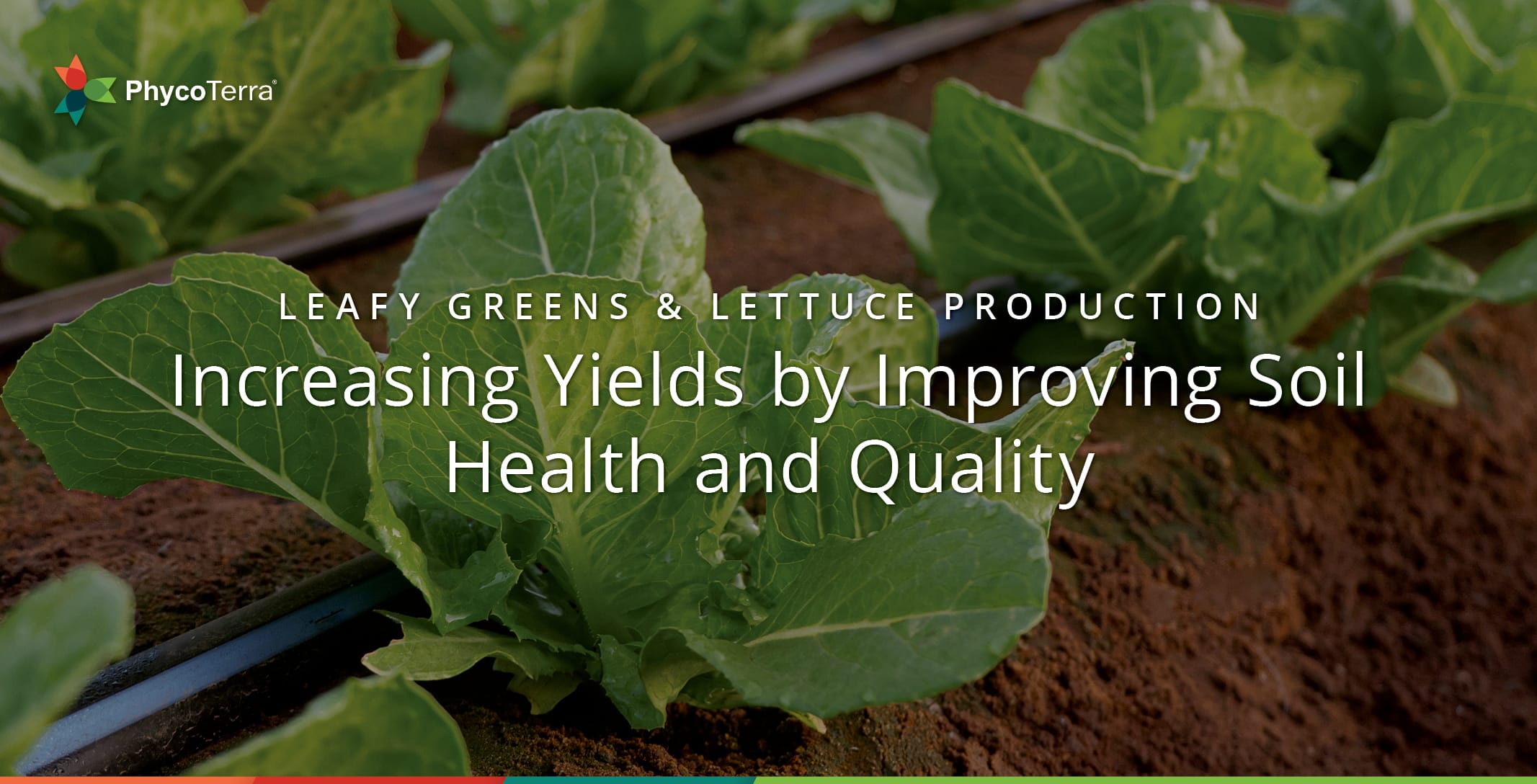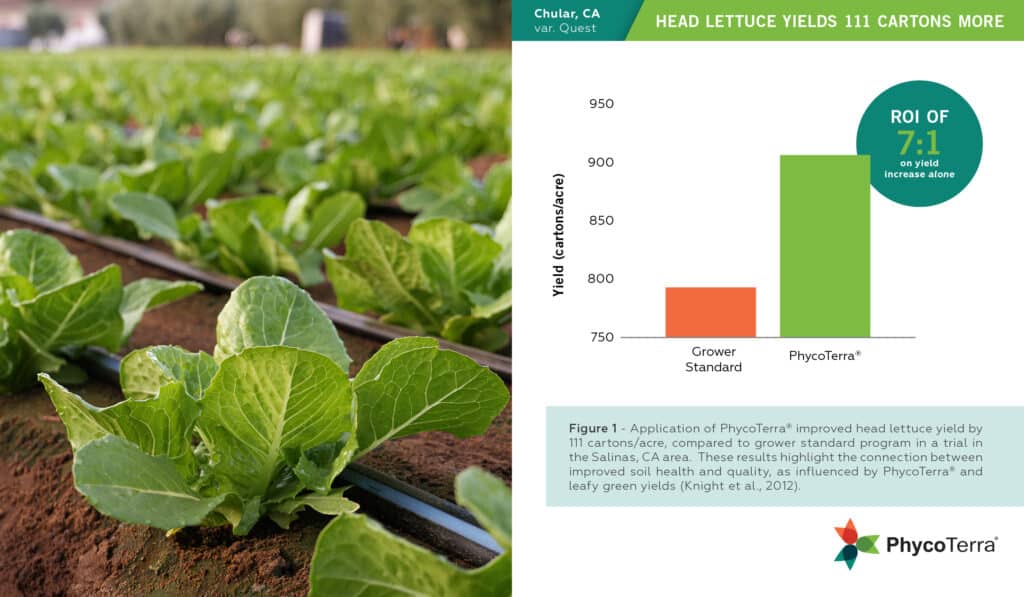Apr 11, 2025




Quick… true or false? The average American ate almost 32 lbs. of lettuce per person in 2004? If you answered “True”, congratulations! You are correct and must be a fan of the leafy green family of crops to know that bit of trivia (Kerna et al., 2017).
Leafy greens are grown for their edible leaves, as the name suggests, and include a variety of familiar faces…like kale, spinach, cabbage and the ever-popular iceberg and romaine lettuces.
While major production areas include California, Arizona, Florida, and Texas, most states have at least some acreage dedicated to growing leafy greens to support a strong consumer driven demand that dates back to the 1950s. (Kerna et al., 2017). And consistent demand has drawn interest from growers hoping to capitalize on the stable leafy greens market.
To achieve peak yield and quality, growers are also interested in improving the soil health and quality of their farms (Weil and Brady 2017), which can be difficult given the challenges leafy green production present. Leafy greens offer a shorter growing window and shallow root system, making functionally productive soil paramount to crop production. Additionally, most leafy greens production models promote extensive tillage and field preparation (e.g., bed listing) and require strict crop safety production protocols to be followed.
For those who can attain improved soil quality and biological productivity, research shows a positive impact on leafy green yields. For example, Knight et al., (2012) report that lettuce dry biomass was positively correlated with several indicators of improved soil health and quality (e.g., soil organic matter %, among others) in soil systems that have received considerable disturbance.
To facilitate soil health in lettuce production and the production of other leafy greens, Heliae’s product family, PhycoTerra and PhycoTerra Organic, provide a microbial superfood and can be readily deployed on your field to help improve soil health and soil quality today. Heliae research shows that application of PhycoTerra products can help improve the soil microbiome by providing a labile food source which can lead to improvements in soil structure and water holding capacity.
The response to PhycoTerra and PhycoTerra Organic is fast and provides a marked improvement in growing environment.
PhycoTerra performance was recently tested in a head lettuce production system near Salinas, CA (Figure 1). The results were resoundingly positive: head lettuce yield increased by 111 carton/acre when PhycoTerra was incorporated into the program, relative to the grower standard, and support the positive correlation between improved soil health and biological activity and leafy green yield potential (Knight et al., 2012).
To learn more about the Heliae microbial superfood product family, PhycoTerra and PhycoTerra Organic, and how it can improve the soil and yields on your farm, click here.
References
Weil and Brady 2017 – https://www.pearson.com/us/higher-education/program/Weil-Nature-and-Properties-of-Soils-The-15th-Edition/PGM219427.html
Knight et al., 2012 –https://soilhealth.osu.edu/sites/soilhealth/files/imce/Alexandra%20Knight%20Soil%20Health%20paper.pdf
Kerna et al. 2017 – https://cals.arizona.edu/arec/sites/cals.arizona.edu.arec/files/publications/FINAL%20leafy%20greens%20september%202017.pdf

Figure 1 – Application of PhycoTerra improved head lettuce yield by 111 cartons/acre, compared to grower standard program in a trial in the Salinas, CA area. These results highlight the connection between improved soil health and quality, as influenced by PhycoTerra and leafy green yields (Knight et al., 2012).
Note: All trial data is current as of blog posting. For the most up to date trail data, please visit our trials page.